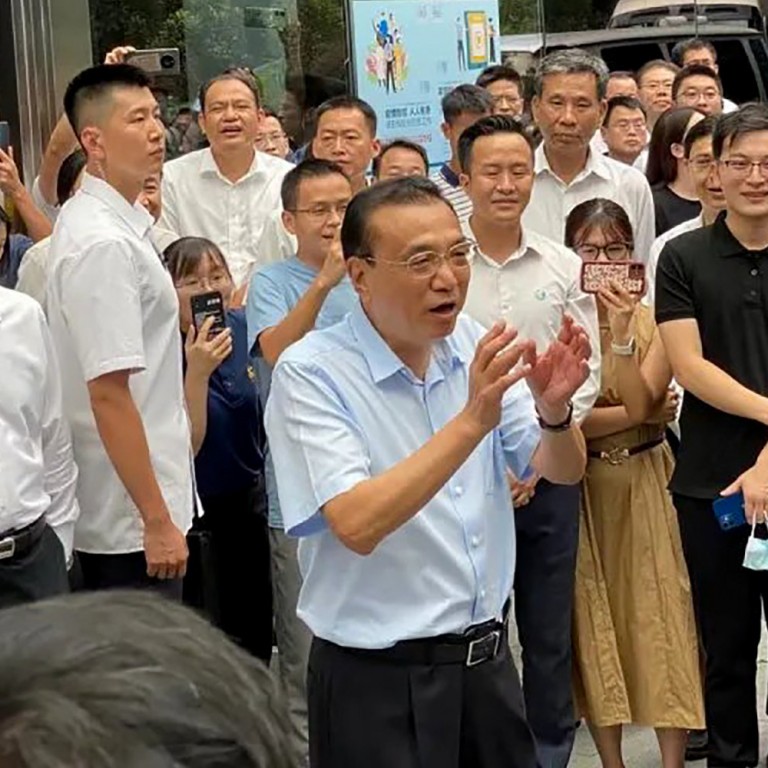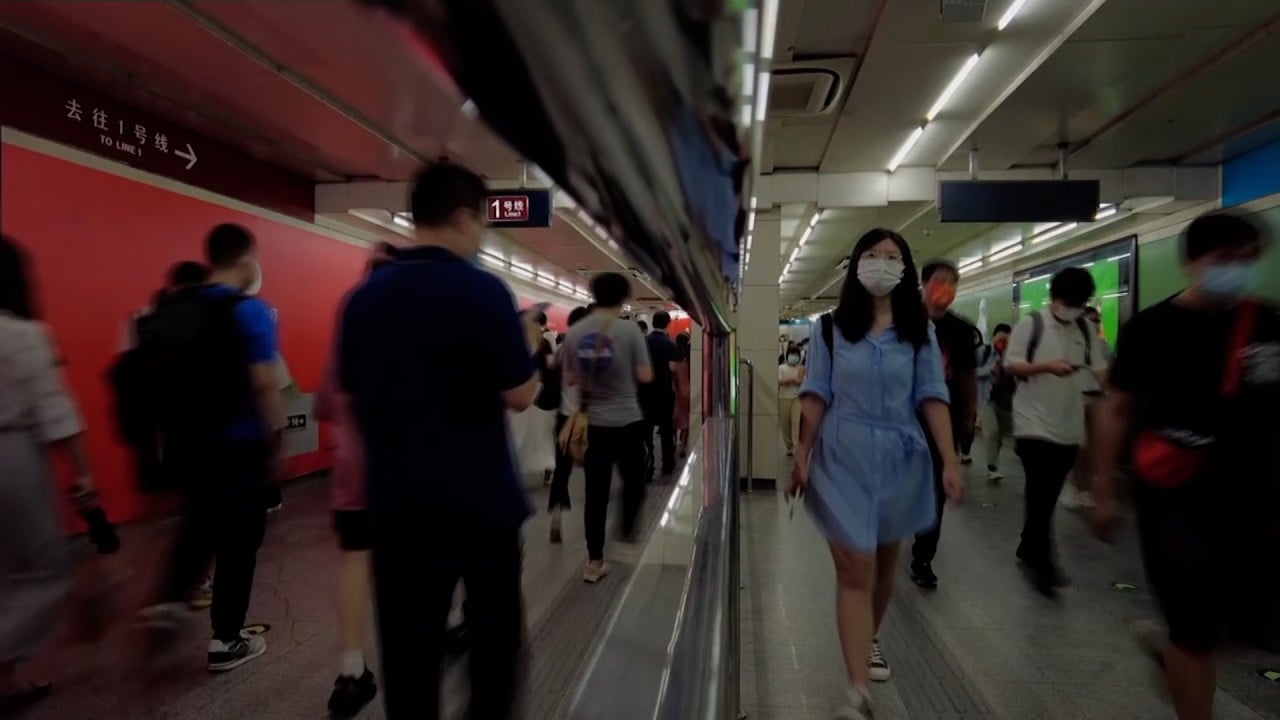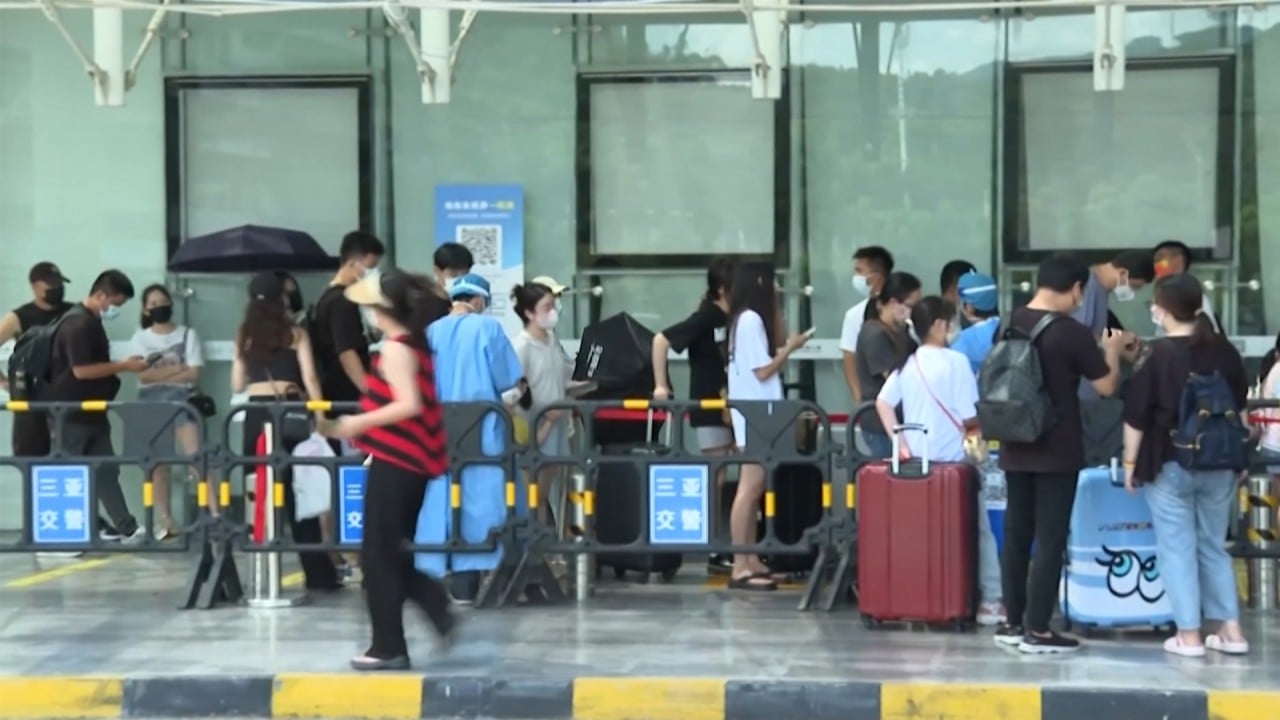
Chinese premier renews call for economic dynamos to help stabilise road to post-Covid recovery
- Li Keqiang heads to Shenzhen on apparent fact-finding mission amid signs of economic cooling
- Li is the first member of the Politburo Standing Committee to make a public appearance since early August
Top cadres from Guangdong, Jiangsu, Zhejiang took part in both meetings, but those from Shanghai and Fujian province were not present on Tuesday.
Li is the first member of the Politburo Standing Committee to make a public appearance since early August when most top leaders disappeared from public view for the annual retreat at the seaside resort of Beidaihe.
State news agency Xinhua said President Xi Jinping on Tuesday sent condolences to Egyptian President Abdel Fattah al Sisi over a deadly church fire but Xi has yet to appear in public.
Last week, several Politburo members, including Vice-Premier Sun Chunlan and Central Military Commission vice-chairman Xu Qiliang took part in various public meetings, suggesting the Beidaihe retreat had ended.
Beidaihe in Hebei province used to be the backdrop for annual private gatherings of top leaders.
But the retreat has become less politically charged, with Xi formalising the party’s decision making process and party elders unwilling to travel because of the pandemic.
China home prices fall for 11th straight month amid mortgage boycott
In Shenzhen on Tuesday, Li called for sustainable momentum in the economic recovery.
“[Our] economy stabilised and rebounded in June, and the pace of growth continued in July. But there are slight fluctuations. [We must] keep up the momentum of recovery, heighten the sense of urgency so we can consolidate the foundation for economic recovery,” Li was quoted as saying.
Internet users also posted videos online of Li greeting entrepreneurs in the tech hub, promising them greater support.
In the videos, Li is accompanied by Guangdong party secretary Li Xi and governor Wang Weizhong.
“I am counting on you!” Li says to the crowd.
A Guangdong official said Li met a group of young entrepreneurs after visiting investment conglomerate Galaxy Industrial Group’s office in Shenzhen.
China’s interest rate cut signals ‘policy easing’ as economy underwhelms in July
Analysts said Li’s trip was an attempt to take the pulse of the economy and map out policies at the Politburo’s meeting later this month.
“Guangdong is key to China’s exports. A deep dive into Guangdong will help Beijing to formulate better policies in this month’s Politburo’s meeting to address the economic woes more effectively,” said Xie Maosong, a senior fellow of the Taihe Institute and a senior researcher at the National Institute of Strategic Studies at Tsinghua University.
Dong Jinyue, senior China economist at BBVA Research, said Li wanted to give the slackening economy a push.
“Li picked this time to visit Shenzhen … to give greater confidence to small and medium-sized enterprises, the real estate market and private enterprises, indicating the authorities will unify them so China can make a soft landing,” Dong said.
“But … the authorities have already given up the 5.5 per cent growth target, which was set in March … before the Shanghai [Covid] lockdown, and they will accept a lower but more practical growth rate [for 2022],” she said.
Xu Yang, principal economist at Hong Kong-based CR-Wellington AI Fund, said Li’s visit highlighted Shenzhen’s strategic position in China’s development.
“Shenzhen is the hub for semiconductor production and digitalisation. The premier’s visit to Shenzhen is a natural route in conjunction with the country’s transition to hi-tech manufacturing development,” Xu said.
“China’s economy is facing challenges due to the pandemic, southern cities like Shenzhen have the obvious leading role for the country’s economic growth.”
Peng Peng, executive chairman at the Guangdong Society of Reform, said Li’s trip had two purposes.
“The first one is to boost confidence in economic development as recent finance and credit data show that consumption and investment are slackening due to a lack of confidence,” Peng said.
Guo Wanda, vice-president of the Shenzhen-based China Development Institute, said Li was anxious to give young people a helping hand.
“Li visited Shenzhen, which is one of China’s most energetic cities, because he wanted to show his support for … young people who are there to try new ideas, to encourage them to innovate or become entrepreneurs even though the economy is struggling and the job market is tight,” Guo said.





